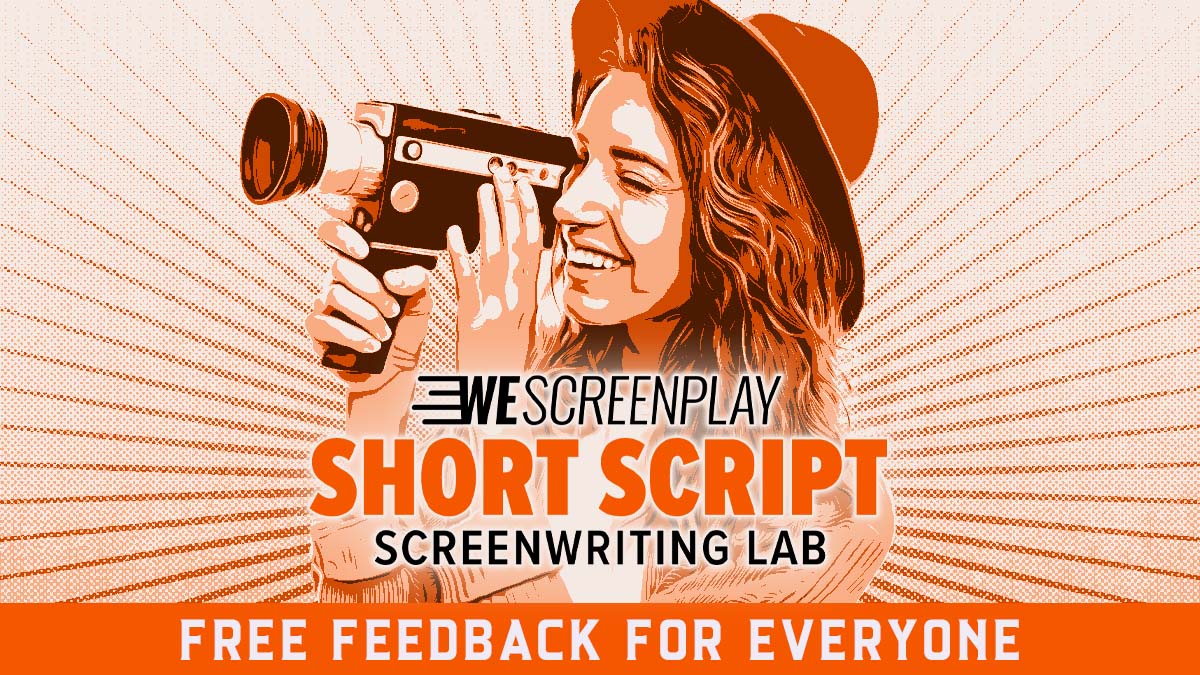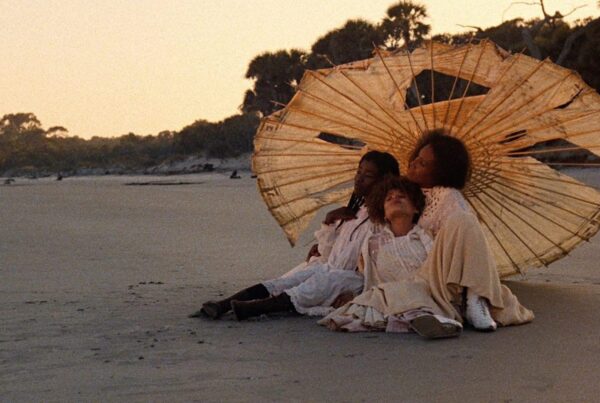
At our most recent Cocktails & Conversation event, we sat down with HAWKEYE TV Writer and WGA LGBTQ+ Committee Co-Chair Katie Mathewson to talk about her experiences writing for television.
The Pacific Northwest native shared so much valuable career advice and insight, from writing with partners to the importance of IP, so definitely check out the entire chat in the video below. However, we’ve also included six of our favorite takeaways.
Every Writer’s Path to a Career Is Different
Right at the top of the conversation, Katie emphasized that no one’s career path in the industry is the same.
“There are two ways to look at that. I think you could say well, there’s no path, there’s no right way. And how am I supposed to know what to do if there aren’t very specific steps or instructions? But I kind of chose to look at it as a good thing. Because I think there used to be this way of thinking of like, if you want to write for television, you have to be a writer’s assistant. And to be a writer’s assistant, you have to be a writer’s PA, or…an office PA or work on set and work your way up…. and that’s not always the case. There are a million different ways that people break in.”
She emphasized that even though she sometimes had to “zigzag,” make a “lateral move,” or “take a step down,” her ultimate goal was “getting closer to television.”
Writing Partnerships Can Be Fantastic
Katie was asked about the dynamic of working in a writing partnership and joked that she and her writing partner Tanner Bean are similar to a “work husband and work wife.”

Tanner Bean and Katie Mathewson
“We’re best friends, we’re business partners, sometimes we’re enemies, sometimes we’re each other’s therapists. And I think if you are in the right partnership, then it’s invaluable.”
Supercharged Ideation
“Having your own mini writer’s room,” as Katie puts it, can be an incredible experience, especially when you need to come up with new ideas, workshop existing ones, or find solutions to problems within the script.
One is the Loneliest Number
Katie also addressed an important (and rarely talked-about) aspect of screenwriting: loneliness.
“Writing can be lonely… I think just having someone to commiserate with or help you get out of, you know, a funk or a black hole or just like, talk through things is great.”
Know Your Creative Assets
Katie was asked specifically whether it’s a good idea for a writer to bring up their own LGBTQ identity and if that could help or hinder them when pitching or looking for a job in the industry.
It’s Complicated
While she didn’t feel there was a definitive answer, so did offer this piece of insight:
“[Some writers have been] hired because of their identity because they are valued for it because the show wants to achieve authentic representation, but [there are also] others, even today, even in 2021, who experience microaggressions and overt discrimination and who have withheld their identity because they’re worried that they’re going to get defined as being just a queer writer, or they’re only be valued for being a queer writer.”

Katie Mathewson
To Share or Not to Share
So, what should underrepresented writers do? Well, Katie suggests that sharing that information might actually help.
“I think [mentioning] it can help. And I think, especially bringing in authentic voices [is] something that people want, especially right now, there’s so much emphasis put on, you know, why are you the person to tell this story…I think that’s advice to take across the board, whether or not you belong to an underrepresented or marginalized community or not. Because right now, people want to know, why are you the person we should hire? What do you relate to? So, being able to pull from your experiences and your life or your family members or your relationships. I think that’s really beneficial.”
Expand Your Idea of IP (Intellectual Property)
The conundrum of Intellectual Property is often at the top of people’s minds, and when asked if there is more interest in content that is based on existing IP or something completely new, Katie had this to say:
“I think there is a lot of interest in IP right now. I think some of that is driven by risk aversion because you can bring this built-in audience, but I think it’s also just the thing of the moment. I don’t know the IP will forever be what’s driving, sales and pickups, but it is pretty big right now.”
The golden nugget of this however is that “anything can be IP.” You don’t have to tackle Marvel or a hit series that has been running for dozens of seasons.
“As an emerging writer, you don’t have to go get your hands on a massive series… [you can be inspired by] Instagram accounts… or articles, or a single mythological creature from like, Norwegian folklore…even music is being used as IP.”

‘Hawkeye’
Have at Least 2 Pieces of Great Writing in Your Portfolio
For emerging writers, Katie advised what they should have in their portfolio.
“Two pieces of writing puts you in a really good position. If you have one great script, and someone reads it, and they’re interested in you, whether that’s a rep or otherwise, most often their next question is going to be like, well, what else can I read? What else do you have? And make sure you have at least one other thing that you can give them. But I also think two great samples is better than three or four good ones.”
And don’t be shy about writing TV shows, features, etc. According to Katie, even if your focus is on, say, TV, you should also have spec script, as well as an original, since some competitions require one or the other.
Writing Doesn’t Have to Be “Art”
Writing is hard, tedious work, so how do you stay motivated? Katie said that she received great advice in college from a professor who emphasized that it wasn’t necessary to think of writing as “art.”
“If it was [art], you’d have to wait for inspiration to strike…wait to be in the mood and then it’s this level of pressure, like I have to create something impactful and profound…[but] everything is the same like, six stories recycled over. So, you don’t have to create something that will change the course of cinema forever…This isn’t art. This is your job. You know, unless you want screenwriting to be like your hobby and something you do for fun, you have to look at it as your job. And, you know, if you work hard and you have a good idea, you might end up with art…And even if I’m not in the mood, I’m like, well, I’m gonna put something on the page. And if it’s all trash and I’m throwing it all away, that’s okay, too.”
—
You can follow Katie on Twitter, and tune in for the next Cocktails and Conversations talk here at WeScreenplay!
Now Open! Katie is on the jury of the Diverse Voices Screenwriting Lab!
 Helenna Santos is an actor, writer, and producer with Mighty Pharaoh Films. She is the author of the poetry book “A Long Dark Summer” (2021) and was the founder/editor-in-chief of the entertainment website Ms. In The Biz for its seven year run (2013 – 2020). Her work as a contributing writer has been featured in MovieMaker Magazine, Film Inquiry, Backstage Magazine, Women and Hollywood, WeScreenplay, and BUST Magazine. As an actor she has appeared in many network and streaming TV shows as well as independent and studio feature films. She also works as a voice actor narrating audio books, animated characters, and commercial campaigns. Helenna is a mix of Filipino/Russian/German heritage and a US and Canadian dual citizen. She resides in Vancouver, BC Canada with her husband and their Bernedoodle pup. Connect with her on Instagram and Twitter!
Helenna Santos is an actor, writer, and producer with Mighty Pharaoh Films. She is the author of the poetry book “A Long Dark Summer” (2021) and was the founder/editor-in-chief of the entertainment website Ms. In The Biz for its seven year run (2013 – 2020). Her work as a contributing writer has been featured in MovieMaker Magazine, Film Inquiry, Backstage Magazine, Women and Hollywood, WeScreenplay, and BUST Magazine. As an actor she has appeared in many network and streaming TV shows as well as independent and studio feature films. She also works as a voice actor narrating audio books, animated characters, and commercial campaigns. Helenna is a mix of Filipino/Russian/German heritage and a US and Canadian dual citizen. She resides in Vancouver, BC Canada with her husband and their Bernedoodle pup. Connect with her on Instagram and Twitter!
For all the latest from WeScreenplay, be sure to follow us on Twitter, Facebook, and Instagram.

















